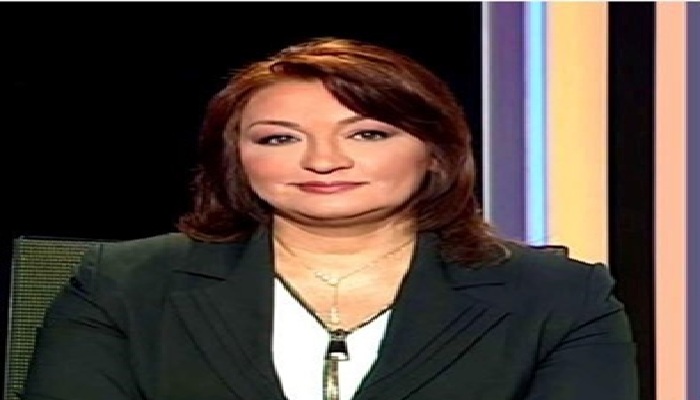
Afrasianet - Laila Nicolas - Sanctions have not led to Russia's collapse and disintegration or to the coup d'état and overthrow of Putin by the oligarchy and the military, as was the European ambition, meaning that the effectiveness of economic coercion in international relations is not always certain.
In response to European calls for increased sanctions on Russia, U.S. President Donald Trump said, "I am prepared to impose major sanctions on Russia when all NATO countries agree and start doing the same, and when all NATO countries stop buying oil from Russia."
It is noteworthy that the Europeans still consider the sanctions mechanism a valid tool to win the war against Russia and deplete it in a way that pushes it to losses with which it cannot resume the war, despite the fact that indicators have proven that this strategy is not correct in the short and medium term, and its success cannot be predicted in the long term.
Since the Ukraine war in February 2022, the Russian economy has shown great resilience and resilience, and the collapse that the Westerners predicted despite the imposition of unprecedented sanctions in history did not occur. The Russian economy is witnessing high growth rates, especially in the period 2023-2025.
Although the Russian economy may suffer from some challenges in the long run, because the war economy is unsustainable, from the difficulty of accessing high-quality technologies (semiconductors) and the decline of some sectors such as civil aviation or others, many economists point out that the West has miscalculated about Russia's collapse as a result of sanctions. Economists attribute this to the fact that Russia has a "real" economy that relies on the tangible physical goods that the world needs, and natural resources such as oil and gas, rather than on scale. Only GDP that may give completely uncertain indicators.
The Russian economy has witnessed a rise in growth rates in the years following the Ukraine war, due to a combination of factors, most notably:
1. Global non-compliance with sanctions
The sanctions have not proven to be as effective as expected, mainly because they have not been adopted globally by non-Western countries, especially China, India, Turkey, the Arab Gulf states, and the countries of the Global South. These countries viewed the conflict as a Western policy and a conflict in which they had no involvement, and they prioritized their economic interests.
2- Rising energy prices:
Russia has benefited greatly from the rise in global oil and gas prices throughout 2022, which has provided it with significant revenues and facilitated its economic adaptation to the new reality. Following Europe's efforts to become independent from Russian energy, Russia is selling oil and gas to other countries, which in turn sell Russian gas on global markets, demonstrating that Russia's enormous size and role in global energy markets make it too important a country to isolated.
3- Growth of the local economy:
This growth can be attributed to several reasons, most notably:
A. Increasing military spending that relies primarily on market mechanisms rather than coercive tools such as conscription requests, general mobilization, or imposed industrial plans.
B. Employment in the military-industrial complex: To maintain the production needed for the war effort, the military-industrial complex has significantly increased employment. As a result, military-industrial companies have had to significantly increase the salaries of their employees to attract and retain labor.
c. Increased consumption and the adjustment of the private sector: Higher salaries in the defense sector led to an increase in consumer spending that extended to other sectors. The Russian market economy, through experienced private companies, adapted to this growing demand by providing consumer goods and services.
d. The role of the Central Bank of Russia: The Central Bank of Russia acted quickly and effectively in the early days of the war to prevent people from rushing to withdraw bank deposits and prevent the collapse of the banking sector.
4. Sanctions have "benefited" the Russian economy
A. Containment of capital flight: It was one of the most striking paradoxes. The confiscation of Russian reserves and assets abroad led to a loss of confidence in Western markets as a safe haven. As a result, investors and oligarchs were forced to reinvest their money inside Russia, providing domestic liquidity and support for investment in domestic infrastructure and sectors, rather than smuggling it abroad.
B. Stimulating "local substitution" and domestic manufacturing: Sanctions and the departure of Western companies forced Russia to become self-reliant. The market vacuum left by major foreign companies was seen as a golden opportunity for Russian companies to expand and fill the vacuum. This stimulated local manufacturing in certain sectors, stimulating the spirit of innovation to circumvent restrictions.
C. Strengthening economic sovereignty: Sanctions have pushed the Russian state toward further "premeditated economic retreat," reducing its dependence on imports for commodities and food, and pushing it to develop alternative supply chains with "friendly" countries such as China, India, and Turkey.
As a result, these indicators shed light on the failure of the sanctions regime in general, as it did not happen that UN or Western sanctions led to the fall of the regime as a result of the sanctions, but rather the West needed a subsequent military intervention to topple the regime, as happened in Iraq.
Nor did the sanctions lead to the collapse and disintegration of Russia or to the coup d'état and overthrow of Putin by the oligarchy and the military, as the European ambition (expressed by many officials) was ... This means that the effectiveness of economic coercion in international relations is not always certain, and it may have counterproductive effects.

